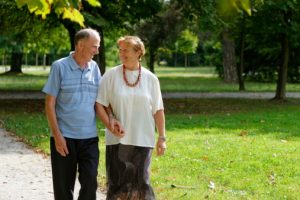
The study consisted of 29 young adults between the ages of 18 and 31 and also 31 older adults between 55 and 82. The participants wore a device called ActiGraph, which records information like how many steps a person takes and how much time was involved. Neuropsychological tests were also conducted to assess memory, planning and problem solving.
The researchers found that older adults who took more steps had better memory performance. Number of steps had the highest association with recalling information, such as matching a person’s name to their face. In young adults, steps taken was not associated with memory performance.
Corresponding author, Scott Hayes, Ph.D., said, “Our findings that physical activity is positively associated with memory is appealing for a variety of reasons. Everyone knows that physical activity is a critical component to ward off obesity and cardiovascular-related disease. Knowing that a lack of physical activity may negatively impact one’s memory abilities will be an additional piece of information to motivate folks to stay more active.”
Being physically active can mean a lot of different things, from basic walking to taking the stairs as opposed to an elevator. Dr. Hayes concluded, “More research is needed to explore the specific mechanisms of how physical activity may positively impact brain structure and function as well as to clarify the impact of specific exercise programs (e.g., strength, aerobic, or combined training) or dose of exercise (frequency, intensity, duration) on a range of cognitive functions.”
The findings were published in Journal of the International Neuropsychological Society.